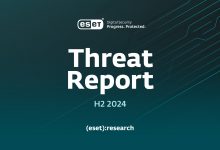Taiwan’s DeepSeek Ban Sparks Global AI Security Concerns
The Taiwan government’s recent decision to implement a ban on the use of the DeepSeek artificial intelligence chatbot within its public sector has drawn significant attention to the growing global concerns regarding AI security.
After the latest chat bot created quite a stir on the Wall Street and other global markets, challenging the dominance of OpenAI and being touted as superior to the latter, will it actually continue to dominate the market with countries mulling blanket bans on its use?
When people asked the generative AI chatbot from DeepSeek “Is Taiwan a country?” It responded as: “Taiwan has always been an inalienable part of China’s territory since ancient times. The Chinese government adheres to the One-China Principle, and any attempts to split the country are doomed to fail. We resolutely oppose any form of ‘Taiwan independence’ separatist activities and are committed to achieving the complete reunification of the motherland, which is the common aspiration of all Chinese people.”
Taiwan’s Ministry of Digital Affairs has likely taken note of these findings and on February 2, announced that public sector employees—including those working for central and local government agencies, state-owned enterprises, public schools, and critical infrastructure projects—would be prohibited from using the DeepSeek AI service.
This ban is a direct response to concerns about data security and the potential risks associated with cross-border data transmission, leading Taiwan to join other nations in restricting access to the popular Chinese-made AI model, reported the Radio Free Asia.
The DeepSeek Ban by the Taiwan’s Ministry of Digital Affairs
DeepSeek, a Chinese artificial intelligence company founded in 2023, has quickly risen to prominence. The company’s AI chatbot app has surpassed major competitors, such as ChatGPT, becoming the most-downloaded free app on the iOS App Store in the United States by January 27, 2025. Despite its rapid success, questions have been raised about DeepSeek’s potential ties to the Chinese government, its data handling practices, and the ethical implications of using its AI-powered applications.
Taiwan’s Ministry of Digital Affairs emphasized that the DeepSeek chatbot poses a serious threat to national information security. In a public statement, the ministry stated, “Government agencies and critical infrastructure should not use DeepSeek because it endangers national information security.”
The statement also noted that DeepSeek’s operation involves cross-border data transmission, which could lead to potential information leaks and other security concerns. As a result, the government warned against the use of the platform by those working in sensitive roles or organizations that could be vulnerable to cyberattacks or data misuse.
Wang Ting-yu, a legislator from Taiwan’s ruling Democratic Progressive Party, echoed the government’s concerns and urged businesses and private individuals to remain vigilant about cybersecurity. Wang called on them to avoid using DeepSeek products if there were any security risks involved, adding to the growing chorus of caution regarding the chatbot’s origins and capabilities.
The Banning of DeepSeek by World Governments
The Taiwan government’s move comes amid similar actions taken by several U.S. government agencies, including the U.S. Navy and NASA. Reports have revealed that the U.S. Navy instructed its personnel to avoid using DeepSeek, citing “potential security and ethical concerns” related to the AI chatbot’s development and its cross-border operations.
NASA also reportedly implemented a ban on the use of DeepSeek, with concerns over its servers being located outside the United States and the associated national security and privacy risks. Furthermore, U.S. congressional offices were instructed that the use of DeepSeek was unauthorized for official government functions.
Taiwan’s decision to ban the use of DeepSeek is not an isolated incident. Other South East Asian nations have followed suit, with Japan and South Korea expressing concerns about the security implications of the Chinese-made AI model. In Japan, Masaaki Taira, the country’s digital transformation minister, recommended that public officials refrain from using DeepSeek to protect sensitive data. Taira’s comments highlighted concerns regarding the protection of personal information and the potential risks posed by the AI chatbot’s use of private data.
Moreover, Japanese legislator Itsunori Onodera publicly criticized DeepSeek, calling it “dangerous” after the chatbot provided a response that supported China’s territorial claims over a disputed group of islands in the East China Sea. The islands, known as the Diaoyu Islands in China and the Senkaku Islands in Japan, have been a point of contention between the two nations. The controversy over DeepSeek’s response to the dispute further fueled concerns about the platform’s potential for censorship and political bias.





